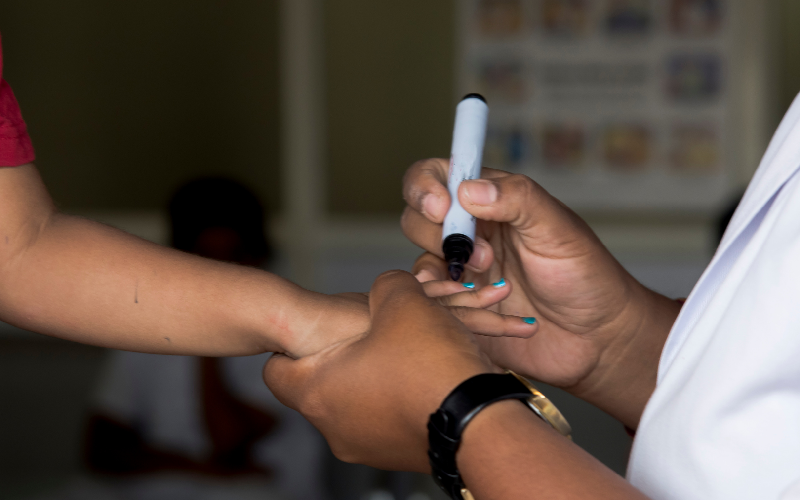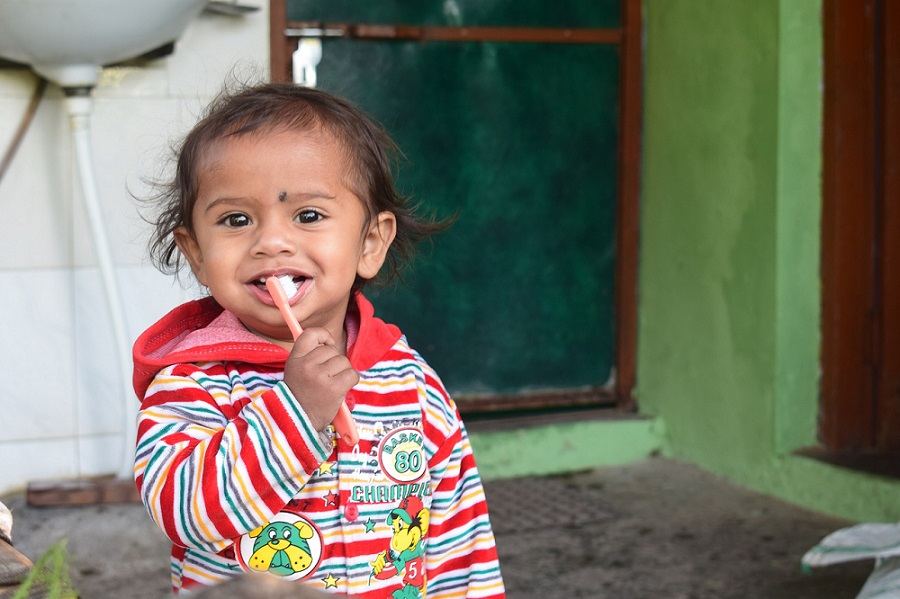Globally, public health training primarily occurs through Master of Public Health (MPH) programs, although undergraduate and doctoral programs also exist. Although difficult to measure, globally public health teaching programs appear to be increasing in number. Accreditation of public health programs, however, remains inconsistent.
There are several locally developed public health competency sets, designed to guide the content of public health education programs and practice guidelines. A recent analysis has demonstrated that these competency sets align with the content and meaning of the Global Charter, with some including additional competencies driven by local (but globally relevant) need (including human rights, cultural responsiveness, and systems thinking) (Coombe et al, 2020). It is also worth noting that efforts are underway to include competencies related to climate change and holistic approaches, such as One Health (for example, WHO ASPHER, 2021).
Developing such competencies, as well as tackling hyper-specialized, fragmented, and “silo” learning models to influence complex webs of policy and governance, can be achieved through building interprofessionalism and interdisciplinarity.
Global Emergencies and the Demand for Public Health Workforce Training
In 2019–21, the world experienced massive transcontinental bushfires in both North and South America, the Arctic, and Australia; at least 20 major floods and cyclones, including Cyclone Amphan in Asia; severe droughts affected all continents (more than 10% of North America); earthquakes and landslides; volcanic eruptions; and infectious diseases, including the SARS CoV-2 pandemic. All these emergencies mobilized public health responses, highlighting the need for public health leaders and professionals to be involved at every level of emergency management and recovery planning and execution.
In the short or long term, the consequences of public health emergencies result in populations that are, in some ways, restricted or displaced, with associated threats to wellbeing, including the security of shelter, food and water provision, health care, income, gender equality, and education. Many aspects of universal progress towards the Sustainable Development Goals are disrupted when such emergencies arise. For example, analyses point to a regression in women’s progress as a result of epidemics (Power 2020, Özkazanç-Pan 2020).
During environmental and health emergencies, public health competence, including familiarity with its key principles, is essential to the management and subsequent recovery of people, their environments, and coexisting plants and animals. Most of these events have resulted in the mobilization of public health responses.
In addition, there is now evidence that public health graduate employers are seeking specific competencies in climate change and global warming, including climate change justice, climate mitigation, GIS mapping, and climate modelling (Krasna et al., 2020).
The Critical Role of Trained Public Health Departments
It is therefore critical that public health efforts are included in the mitigation and recovery plans developed for real-world use, but this is not possible if trained public health professionals do not staff public health departments, and if public health professionals are not part of routine governance and government processes. Results of the recent PHWINS survey in the USA showed that only 14% of public health staff had public health qualifications (Sellers et al, 2019). We note that in Australia, very few advertised public health jobs require public health qualifications (Watts et al, 2019).
In addition, public health graduates are employed in many sectors, not necessarily in the broad field of public health and health care or the government sector. There is a need to assess the labour market demand and develop public health job taxonomies which will clearly define governmental jobs and job profiles to enhance hiring of public health graduates (Krasna H et al, 2021), bearing in mind that the supply of graduates may outstrip current employment demand (Watts et al, 2021).
Challenges in Maintaining Public Health Programs
Public health is both reactive and proactive. However, public health initiatives can cause public health programs to become victims of their own success, because when public health initiatives work, the obvious and immediate need for them dissipates. Examples of successful programs include routine contact tracing in non-pandemic times, clean air and water initiatives, and accident-reduction programmes. Often, these initiatives are handed over to specialized departments, for example, women’s health and cancer screening programs.
Maintaining resources for routine public health program maintenance can be difficult when resources are limited and public interest and political imperatives wane. When interventions work well to prevent disease, it can seem as if nothing has happened, making the importance of sustained public health provision invisible to the general public.
Public health initiatives are also multifaceted; they often begin with straightforward epidemiology, but successful controls also draw on social epidemiology, health promotion, policy, cultural responsiveness, Indigenous knowledges, systems thinking, advocacy, and capacity building. The WFPHA Global Charter can be applied to any public health problem and used to identify gaps and shortfalls in short- and long-term responses.
Arguably, management of the ongoing SARS-CoV-2 pandemic has been hampered in many places by inappropriate, fragmented, partial, and incomplete application of public health initiatives.
Example of an Outbreak Response Lacking Public Health Coordination: Housing Tower Lockdowns in Melbourne
During the COVID pandemic, on the afternoon of July 4th in Melbourne, and early in Melbourne’s “second wave,” with no warning, a group of nine public housing tower blocks housing around 3,000 people were completely locked down. The towers had been identified as central to the transmission of SARS-CoV-2 and also connected to other transmission sites. This was the first time emergency powers in relation to the pandemic had been enacted in Victoria.
Residents were immediately confined to their homes, not allowed to leave even for necessities such as medicines and infant formula. Following testing, although rules were relaxed somewhat in eight blocks, residents of one tower remained confined for two weeks. The tower blocks house a multicultural group of residents, many of whom arrived as asylum seekers and refugees, for whom English is not a first language, and for whom having members of the security services patrolling their homes, with whom they were not able to effectively communicate, was frightening.
The decision to lock down the towers was made by the Victorian Government, which, although acting on broad public health advice, was made at speed and without apparent consultation with public health staff. Whilst the appropriate health officer signed the orders, it was with insufficient time to discuss the implications of this action.
An ombudsman investigation into the way this was conducted showed that whilst the need to lockdown might have been necessary, the way it was carried out, without due consideration of the impact on residents, breached their human rights.
Despite Australia’s SARS-CoV-2 response being an example of a reasonably well-controlled outbreak response, it has nevertheless encountered challenges with far-reaching implications when public health-trained staff were not involved in incident management. This example shows that, even in a country with a trained core public health workforce, poor communication between departments when public health responses are not implemented and coordinated by public health professionals can have far-reaching implications.
Importance of Public Health Workforce Training Across All Units
Public health is a discrete part of health service provision, with its own specialist training. Some critical aspects of public health have developed as sub-specialities (for example, epidemiology and biostatistics, vaccination and immunization, and health promotion) in the same way that other health specialities have. However, the successful implementation of public health programs requires an understanding of all aspects of public health.
It has been noted that public health units in various countries are led by people with little or no public health training, a factor that has been considered by public health organizations in the past, including the WHO and the WFPHA (Sadana 2007, WHO 2006). As there is a potential oversupply of public health graduates, public health units need to prioritize employing public health-educated graduates to prevent them from being lost to other employers and missing meaningful change-agent opportunities (Watts et al., 2021; Krasna et al., 2021).
We propose that the importance and visibility of public health can be improved if appropriately trained people are included in all plans, directly or indirectly, that involve the health of whole populations.
We note that not all public health education programs are based on public health competencies and are not all accredited courses, potentially leading to inconsistencies in course content and delivery (Watts et al., 2021). We therefore also propose that public health education draws on practical experiences from service provision, where possible through teaching staff having government public health service provision, including through joint appointments, and that all public health teaching programmes should be based on a locally appropriate set of competencies, and that public health courses should be accredited. This will provide graduates with a set of knowledge and skills on which employers can rely.
Recommendations
-
The WFPHA endorses the need for all jurisdictions working with populations affected by emergencies to employ staff who have been appropriately trained in public health.
-
That WFPHA endorses the inclusion of staff trained in public health (both during the development of public health plans and programmes designed to manage responses to public health emergencies, and during regular activities), whether the need arises from environmental or pathogenic causes.
Actions Sought
-
The WFPHA petitions its members, including their managers, to demonstrate the importance of undertaking training in accordance with a set of public health competencies that align with the WFPHA Global Charter.
-
The WFPHA petitions its members to ensure that those teaching in core areas of public health are appropriately trained in the discipline of public health, in accordance with a set of public health competencies that align with the WFPHA Global Charter.
-
The WFPHA, through the PET working group, identifies and distinguishes between foundational and specialized competencies for the purpose of accrediting varying programme levels (undergraduate, postgraduate, and doctoral levels), similar to the CEPH mechanism in the USA, to both harmonize public health training globally and distinguish between public health training and the more hyper-specialized and fragmented learning models.
-
The WFPHA develops a mechanism to endorse public health competency sets for accreditation of public health education and training programs.
-
That WFPHA lobbies the WHO to recommend that appropriately qualified people staff public health departments and teaching programs.
References
Coombe L, Severinsen C, Robinson P. Practical competencies for public health education: a global analysis. International Journal of Public Health. 2020, 65: 1159–1167.
Krasna H, Czabanowska K, Jiang S, et al. The Future of Careers at the Intersection of Climate Change and Public Health: What Can Job Postings and an Employer Survey Tell Us?. Int J Environ Res Public Health. 2020;17(4):1310. Published 2020 Feb 18. doi:10.3390/ijerph17041310
Krasna H, Czabanowska K, Beck A, Cushman LF, Leider JP. Labour market competition for public health graduates in the United States: A comparison of workforce taxonomies with job postings before and during the COVID-19 pandemic. Int J Health Plann Mgmt. 2021;1–17. https://doi.org/10.1002/hpm.3128KRASNA ET AL.-17.
Lomazzi M. A Global Charter for the Public’s Health—the public health system: role, functions, competencies and education requirements. European Journal of Public Health, 2016:26:2: 210–212. doi.org/10.1093/eurpub/ckw011
Özkazanç-Pan B, Pullen A. Gendered labour and work, even in pandemic times. Gend Work Organ. 2020 Sep; 27(5): 675–676. doi: 10.1111/gwao.12516
Power K. The COVID-19 pandemic has increased the care burden of women and families. 2020. Sustainability: Science, Practice and Policy, 16:1:67-73.doi.org/10.1080/15487733.2020.1776561
Sadana R, Mushtaque A, Chowdhury R, Petrakova A. Strengthening public health education and training to improve global health. Bull World Health Organ. 2007 Mar; 85(3): 163.doi: 10.2471/BLT.06.039321.
Sellers K, Leider J, Gould E, Castrucci B, Beck A, Bogaert K, Coronado F, Shah G, Yeager V, Beitsch L, and Erwin P. The State of the US Governmental Public Health Workforce, 2014–2017. American Journal of Public Health 2019,109: 674-680.
United Nations. United Nations Sustainable Development Goals. Developed for release in 2015. Cited 12/02/2020
WFPHA. The Global Charter for the Public’s Health. World Federation of Public Health Associations, 2020. Cited 05/01/2021.
Watts RD, Bowles DC, Fisher C, Li W. Public health job advertisements in Australia and New Zealand: a changing landscape. Australian and New Zealand Journal of Public Health: 2019, 43(6):522-428.
Watts RD, Bowles DC, Fisher C, Li W. The growth of Australian public health graduates and courses, 2001-2018: implications for education and employment opportunities. Australian and New Zealand Journal of Public Health. Early View, First published: 22 February 2021.
WHO. World Health Report 2006: Working Together for Health. Geneva: World Health Organization; 2006. (Cited 26/02/2021)
WHO. WHO-ASPHER Competency Framework for the Public Health Workforce in the European Region. 2020. WHO Regional Office, Copenhagen, Denmark. (Cited 20/03/2021 at https://www.euro.who.int/__data/assets/pdf_file/0003/444576/WHO-ASPHER-Public-
Health-Workforce-Europe-eng.pdf.)
WHO. Essential public health functions, health systems and health security: developing conceptual clarity and a WHO roadmap for action. Geneva: World Health Organization; 2018. Licence: CC BY-NC-SA 3.0 IGO. (Cited 05/01/2021 at https://apps.who.int/iris/bitstream/handle/10665/272597/9789241514088-eng.pdf?sequence=1&isAllowed=y.)







Recent Comments